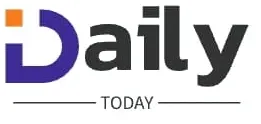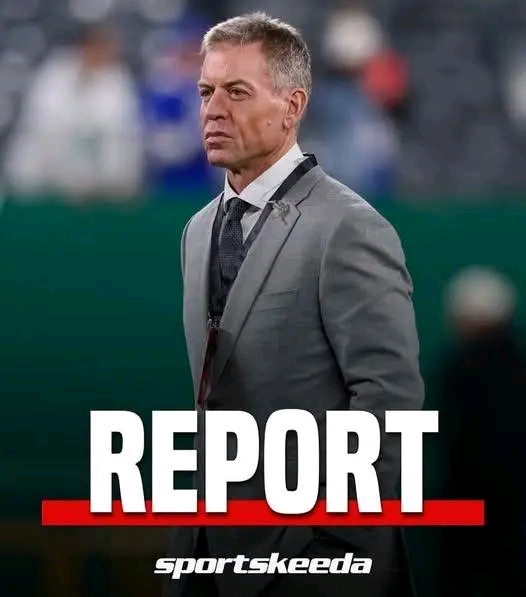The NFL’s Responsibility to Gamblers: Why Accurate Officiating Matters More Than Ever
Legendary Dallas Cowboys quarterback and Hall of Famer Troy Aikman recently made a compelling argument about the NFL’s obligation to ensure that referees make the correct calls on the field. His reasoning? The explosion of legalized sports betting means that millions of dollars now hinge on split-second officiating decisions.
Aikman’s comments come at a time when the NFL has fully embraced sports gambling, forming lucrative partnerships with betting companies while simultaneously facing increased scrutiny over officiating controversies. With fans and bettors alike demanding fairness and transparency, the league is under more pressure than ever to “get it right.”
HBAgency
HBAgency
HBAgency
In this in-depth analysis, we’ll explore:
HBAgency
HBAgency
HBAgency
The rise of legalized sports betting and its impact on the NFL
How officiating errors affect gamblers and the integrity of the game
The technology available to improve accuracy (and why the NFL resists full transparency)
Aikman’s stance and what the league must do moving forward
1. The NFL’s Complicated Relationship with Gambling
For decades, the NFL publicly distanced itself from gambling, wary of the potential for scandal and corruption. However, in 2018, the landscape changed dramatically when the U.S. Supreme Court struck down the federal ban on sports betting, allowing states to legalize it individually. Since then, the league has fully embraced gambling, signing massive sponsorship deals with companies like Caesars, DraftKings, and FanDuel.
Key Facts:
The American Gaming Association estimates that $16 billion was legally wagered on the NFL in 2023.
The NFL earns hundreds of millions annually from gambling partnerships.
Nearly 50 million Americans are expected to bet on the NFL this season.
Yet, as Aikman pointed out, with this influx of money comes greater responsibility. A bad call by a referee isn’t just a blown call—it can alter point spreads, void prop bets, and swing millions in outcomes.
2. How Officiating Errors Affect Gamblers
Every week, controversial calls spark outrage—not just from fans and teams, but from bettors who lose money due to incorrect rulings. Some of the most infamous recent examples include:
The 2018 NFC Championship No-Call (Rams vs. Saints) – A missed pass interference likely cost the Saints a Super Bowl berth and shifted millions in bets.
The 2023 Lions vs. Cowboys Controversy – A disputed penalty flag pickup altered the game’s outcome, directly impacting bettors on the spread.
The 2022 Bengals vs. Packers “No-Call” – A late-game officiating decision changed the point spread result, leading to widespread frustration.
The Financial Impact:
Point spreads – A single bad call can flip the result, costing bettors (and sportsbooks) millions.
Prop bets – A questionable holding call can nullify a touchdown, voiding player props.
Live betting – In-game wagering is especially vulnerable to officiating inconsistencies.
Aikman’s argument is simple: If the NFL is going to profit from gambling, it must ensure that games are decided by players—not referees.
3. The Technology Exists—So Why Doesn’t the NFL Use It Fully?
The NFL has made some strides in improving officiating:
Instant replay reviews (though often limited in scope)
SkyJudge proposal (a booth official to correct clear errors in real time)
Enhanced camera angles (for replay reviews)
Yet, the league resists full transparency, refusing to:
Mic up officials (like in the NHL) for real-time explanations.
Publicly grade referees to hold them accountable.
Allow challenges on all penalties (only certain calls are reviewable).
Why the Resistance?
Tradition – The NFL has long been slow to adopt changes (see: the years-long fight over instant replay).
Fear of Slowing the Game – More reviews could extend game times, though fans might accept this for accuracy.
Protecting Officials – The league shields referees from criticism, even after blatant mistakes.
Aikman’s point is that we’re at a technological tipping point—there’s no excuse for not using every tool available to get calls right.
4. Troy Aikman’s Stance: What the NFL Must Do Now
Aikman, now a lead analyst for ESPN’s Monday Night Football, has seen firsthand how officiating impacts games—and now, how it impacts gambling. His argument is straightforward:
“There’s a lot of money that’s changing hands with these calls. I think that we owe it to the fans that we get it right, and I think we’re at a point in time where we can. We can get it more right.”
Aikman’s Suggested Fixes:
Expand replay review – Allow coaches to challenge any call (including penalties).
Implement a SkyJudge – A booth official should correct obvious mistakes in real time.
Increase transparency – Release officiating reports with full explanations post-game.
Hold refs accountable – Publicly grade officials and demote those who consistently underperform.
The Bigger Picture: Integrity of the Game
Beyond gambling, fans simply want fair outcomes. If the NFL continues to allow games to be decided by questionable calls, it risks losing credibility—especially as it profits from the very industry most affected by those calls.
The NFL Must Adapt—Or Risk a Crisis of Trust
Troy Aikman is absolutely right: The NFL owes it to fans—and gamblers—to get officiating right. With billions of dollars at stake and technology readily available, there’s no excuse for the league to continue resisting full transparency and accuracy.
If the NFL wants to maintain its status as America’s most popular sport, it must embrace innovation, hold officials accountable, and ensure that games are decided by players—not referees’ mistakes.
The question is: Will the league listen? Or will it wait for another high-profile officiating disaster to force change?
For now, Aikman’s message is clear: “We can get it more right.” And the NFL should.
What Do You Think?
Should the NFL allow all penalties to be challenged?
Would a SkyJudge system improve fairness?
Is the league doing enough to protect the integrity of the game amid the gambling boom?

